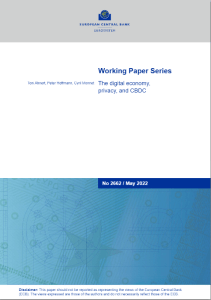The Eurogroup in inclusive format issued a statement on the future of the Banking Union.
The creation of the Banking Union in 2014 was a powerful response to the financial crisis, with significant progress on an EU single rulebook, on the establishment of a new European architecture for supervision and resolution, and on reducing risks. This has contributed to making Europe’s banks more robust and businesses, investors and citizens more confident in the European financial system. During the pandemic crisis, the European banking sector has been a source of stability rather than weakness.
Yet, the Banking Union remains incomplete. Further progress is needed to allow the banking sector to fully contribute to Europe’s economic resilience and sustainability. A robust and competitive EU banking sector, together with strong capital markets, will be key to mobilising the investments needed for the green and digital transformation and the energy transition. A reinforced Banking Union will foster trust and strengthen financial stability – necessary conditions for growth and reforms. In December 2021, the Leaders reiterated the mandate to the Eurogroup in inclusive format to agree on a work plan charting the way towards the completion of the Banking Union.

The digital economy, privacy, and CBDC |
The Eurogroup in inclusive format has explored ways to
- strengthen the framework for the management of failing banks in the EU,
- create a more robust common protection for depositors,
- facilitate a more integrated single market for banking services, and
- encourage greater diversification of banks’ sovereign bond holdings in the EU.
We have agreed that, as an immediate step, work on the Banking Union should focus on strengthening the common framework for bank crisis management and national deposit guarantee schemes (CMDI framework). Subsequently, we will review the state of the Banking Union and identify in a consensual manner possible further measures with regard to the other outstanding elements to strengthen and complete the Banking Union.
A consistent and effective framework for managing banks in distress is a critical part of the Banking Union. Its role is to ensure financial stability, create a level playing field, and protect depositors and taxpayers through consistent burden sharing and through the industry-funded safety nets. The EU framework has been significantly reinforced over the last decade. Yet, there remains room for improvement and harmonisation to build a crisis management framework suited for all types of banks, including for small and medium-sized banks.
Drawing on the experience of the last decade, the Eurogroup in inclusive format agrees on the following broad elements to underpin a strengthened CMDI framework:
- A clarified and harmonised public interest assessment.
- Broadened application of resolution tools in crisis management at European and national level, including for smaller and medium-sized banks, where the funding needed for effective use of resolution tools is available, notably through MREL and industry-funded safety nets.
- Further harmonisation of the use of national deposit guarantee funds in crisis management, while ensuring appropriate flexibility for facilitating market exit of failing banks in a manner that preserves the value of the bank’s assets. A harmonised least-cost test, administered by national authorities, to govern the use of DGS funds outside payout to covered depositors, to ensure consistent, credible and predictable outcomes.
- Harmonisation of targeted features of national bank insolvency laws to ensure consistency with the principles of the European CMDI framework.
While maintaining a level playing field, the improved CMDI framework will take due account of the specificities in the national banking sectors, including by preserving a functioning framework for institutional protection schemes to implement preventive measures.
The Eurogroup in inclusive format invites the European Commission, in full respect of its powers under the Treaties, to consider bringing forward legislative proposals for a reformed CMDI framework. We invite the co-legislators to complete any legislative work during this institutional cycle until early-2024. We take note of the intention of the European Commission to finalise the review of the State aid framework for banks to ensure consistency between the State aid framework and the renewed CMDI framework.
We also remain committed to making progress as a matter of priority on the capital markets union. The capital markets union complements the Banking Union and will be an indispensable component in providing a larger and more diversified pool of resources to support our economies and foster the single market in financial services. Both initiatives would also enhance the international role of the euro and strengthen Europe’s resilience and open strategic autonomy.

Recovery plans: MEPs push for wise use of money, democratic oversight |






Leave a Reply